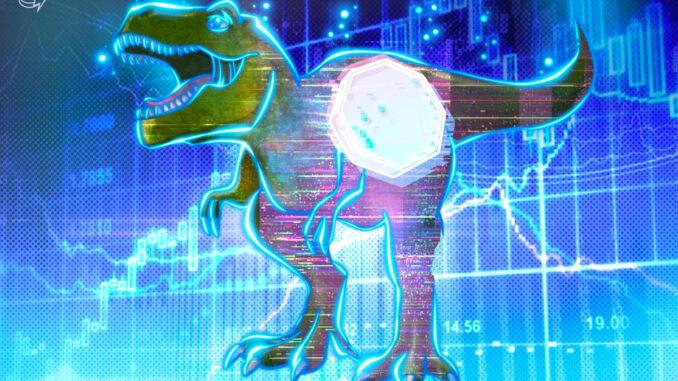
Key takeaways:
Zcash and Dash are leading a post-crash “privacy revival,” breaking multi-year downtrends.
Monero did not join the rally due to major exchange delistings.
Privacy-focused cryptocurrencies, Zcash (ZEC) and Dash (DASH), have been among the strongest gainers following the crypto market rout on Friday and Saturday that liquidated a record $20 billion or more in positions.
As of Thursday, ZEC had bounced by over 66% from its Oct. 9 low to $246. It was also up by almost 350% year-to-date (YTD), including 230% gains in October alone.
DASH rebounded by over 65% since the crash, trading for almost $50 as of Thursday. Its returns in the past month, meanwhile, were close to 150%.
Even Litecoin (LTC), which underwent a privacy upgrade, dubbed “Mimblewimble,” in 2021, has jumped by over 80% from its local lows. However, it has lagged behind most privacy coins on the year, down about 7.50% in 2025.
These recent price surges have prompted some traders to proclaim a so-called “dinosaur coin season,” where older coins (pre-2017) with a history of underperforming the crypto market for years are seeing a bullish revival.
But what is driving this rally?
Naval Ravikant’s Zcash endorsement
The total market capitalization of privacy coins has increased by 36.70% since Oct. 1, reaching over $7 billion as of Thursday, according to Messari’s list of 151 such tokens.
Privacy coins started rallying after renowned investor Naval Ravikant called Zcash an “insurance against Bitcoin” in an Oct. 1 post, with ZEC jumping by more than 60% on the day.
After the crash wiped out billions in leveraged positions, the altcoin market hit its most oversold levels since April, creating an attractive setup for dip buyers.
So when Zcash rebounded sharply, fueled by oversold conditions and the nod from Ravikant, it signaled to traders that the privacy coin market was ready for a rebound.
The result was a classic relief rally, where privacy tokens bounced sharply.
Related: ShapeShift revives privacy focus with Zcash shielded support
Monero (XMR), the leading privacy coin by market cap, missed out on such sharp rebounds. It remains delisted or restricted on most major exchanges, including Binance and OKX, as well as several European trading platforms, due to its opaque design.
These delistings have drastically reduced its liquidity and visibility, limiting its upside during broad market rebounds.
Technical reversals after multi-year downtrends
The “dino” coins that have surged recently are breaking out of multi-year downtrends, marking a long-awaited shift in momentum. It is similar to the way XRP broke out of its seven-year consolidation trend in November 2024, rallying over 630% afterward.
Both Zcash and Dash have broken from multi-year falling wedge patterns, a bullish reversal setup that often precedes strong upside continuation.
ZEC confirmed its breakout this month after surging past the $200–$220 resistance zone, which it has now flipped into new short-term support. The move marks the end of a seven-year downtrend and opens the door to a potential rally toward $490 in the coming months.
DASH has already entered its own breakout phase, reclaiming the $50 mark for the first time since early 2024.
A sustained close above this zone, further gauged by DASH’s 50-month EMA (the red wave), could validate the wedge breakout, setting sights on $760 or higher in the coming months or years.
DASH’s pullback from the 50-month EMA resistance may invalidate or delay the multimonth breakout setup.
LTC remains inside an ascending triangle pattern, defined by a series of higher lows since 2022.
It has repeatedly failed to break above the $100-$150 range. But a decisive breakout above this ceiling could trigger a measured move toward the 1.0 Fibonacci retracement level near $375, marking a full recovery of its previous cycle losses.
Collectively, these structures reinforce the “privacy revival” narrative, with ZEC and DASH currently leading the way.
This article does not contain investment advice or recommendations. Every investment and trading move involves risk, and readers should conduct their own research when making a decision.






Be the first to comment